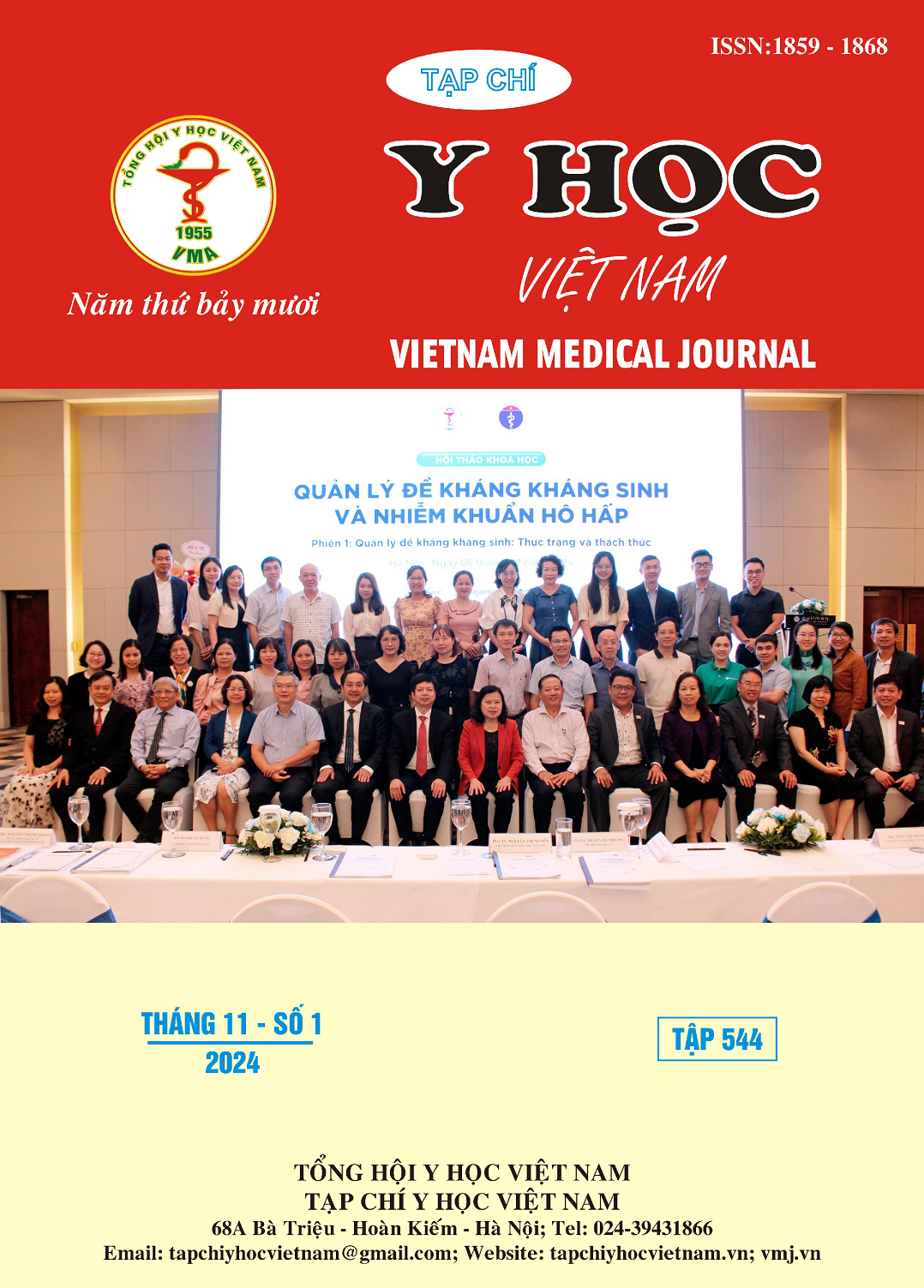ROLE OF REHABILITATION IN ELDERLY PATIENTS AFTER COLON CANCER SURGERY
Main Article Content
Abstract
Objective: Colon cancer surgery is a major surgery, causing many anatomical and phisiological changes in the body, especially patients over 60 years old. Therefore, posoperative rehabilitation is necesary to improve general health, minimize the risk of secondary disabilities and return to their life. Purposes: This study aims to evaluate the outcome of rehabilitation in elderly patients after colon cancer surgery. Methods: this is a descriptive study, which monitors the treatment process of 38 patients over 60 after colon surgery who are recieved postopẻative rehabilitation according to the training program at Viet Duc university hospital. Results: The average age of the study group was 74.1 years old, 78.9% had radical surgery to remove tumors by endoscopy. Patients had some secondary injuries such as pneumonia, surgical site infection, urinary retention, electrolyte disturbances. Patients received an average of 6.2 sessions of rehabilitation training, with an average hospital stay of 14.3 days. Patients had improvements in VAS pain scores when exercising after the training process, improved general health according to the Time up and go scale, and improved quality of life after training with statistical significance. Conclusion: Rehabilitation training for elderly patients after colon surgery helps patients reduce pain when exercising, improve walking ability and quality of life.
Article Details
Keywords
elderly, rehabilitation, post-colon cancer surgery
References
2. Pei W, Zhou SC, Liang JW, et al. [Analysis of risk factors of severe postoperative complications in elderly patients with colorectal cancer aged over 80 years]. Zhonghua Wei Chang Wai Ke Za Zhi Chin J Gastrointest Surg. 2020;23(7):695-700. doi:10.3760/cma.j.cn.441530-20190814-00308
3. Pei W, Zhou SC, Liang JW, et al. [Analysis of risk factors of severe postoperative complications in elderly patients with colorectal cancer aged over 80 years]. Zhonghua Wei Chang Wai Ke Za Zhi Chin J Gastrointest Surg. 2020;23(7):695-700. doi:10.3760/cma.j.cn.441530-20190814-00308
4. González-Senac NM, Mayordomo-Cava J, Macías-Valle A, et al. Colorectal Cancer in Elderly Patients with Surgical Indication: State of the Art, Current Management, Role of Frailty and Benefits of a Geriatric Liaison. Int J Environ Res Public Health. 2021;18(11):6072. doi: 10.3390/ ijerph18116072
5. Hoogendijk EO, Afilalo J, Ensrud KE, Kowal P, Onder G, Fried LP. Frailty: implications for clinical practice and public health. Lancet Lond Engl. 2019;394(10206):1365-1375. doi:10.1016/ S0140-6736(19)31786-6
6. Ahn KY, Hur H, Kim DH, et al. The effects of inpatient exercise therapy on the length of hospital stay in stages I-III colon cancer patients: randomized controlled trial. Int J Colorectal Dis. 2013; 28(5):643-651. doi:10.1007/s00384-013-1665-1
7. Hendriks S, Huisman MG, Ghignone F, et al. Timed up and go test and long-term survival in older adults after oncologic surgery. BMC Geriatr. 2022;22:934. doi:10.1186/s12877-022-03585-4
8. Bartels SA, Vlug MS, Ubbink DT, Bemelman WA. Quality of life after laparoscopic and open colorectal surgery: A systematic review. World J Gastroenterol WJG. 2010;16(40):5035-5041. doi:10.3748/wjg.v16.i40.5035


